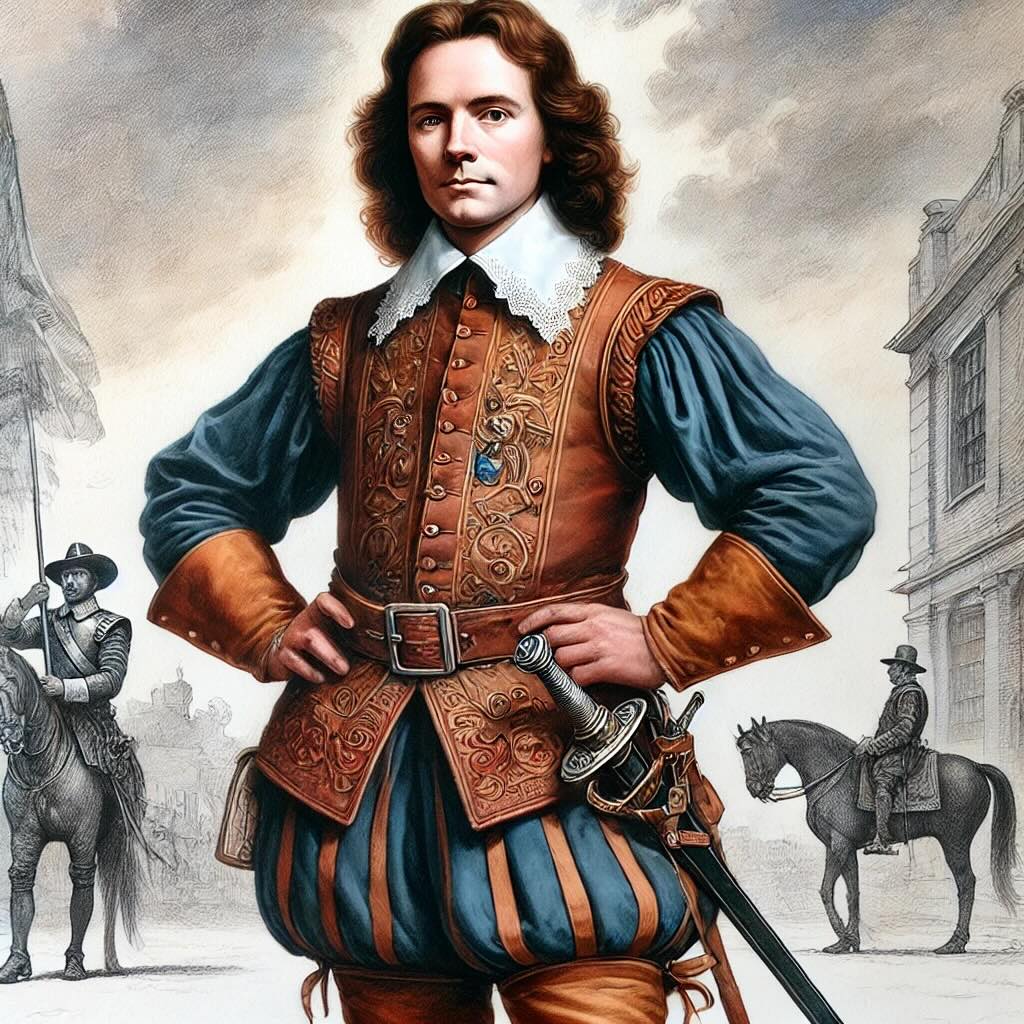
Oliver Cromwell, a key figure in the English Civil War, became Lord Protector after King Charles I’s execution, ruling with strict Puritan values. He united England, Scotland, and Ireland, achieving significant military and foreign policy successes. However, his governance led to discontent and, after his death, the monarchy was restored in 1660, marking the end of England’s brief period as a republic..
Oliver Cromwell, born in 1599, was a pivotal English statesman and military leader who played a central role in the English Civil War and the subsequent establishment of the Commonwealth of England. Cromwell was a staunch supporter of Puritanism, which influenced his political and military decisions throughout his life. His rise to power began during the English Civil War (1642–1651), where he initially served as a captain in the parliamentary forces but quickly distinguished himself as a capable and decisive leader. His success on the battlefield, particularly at the Battle of Marston Moor in 1644 and the decisive Battle of Naseby in 1645, solidified his reputation as one of the leading figures of the Parliamentary cause against King Charles I.
Following the execution of King Charles I in 1649, England was declared a republic, and Cromwell became a key figure in the new government. As a member of the Council of State, he was instrumental in quashing resistance to the new regime in Wales, Ireland, and Scotland. His military campaigns in these regions were often brutal, particularly in Ireland, where his forces captured Drogheda and Wexford, resulting in significant loss of life and long-lasting resentment. Cromwell’s actions in Ireland are still a subject of intense debate and controversy.
In 1653, dissatisfied with the ineffective governance of the Rump Parliament, Cromwell dissolved it and was appointed Lord Protector under the newly adopted Instrument of Government, England’s first written constitution. As Lord Protector, Cromwell ruled with a strong hand, emphasizing stability and the rule of law. His government enacted several significant reforms, including the reorganization of the Church of England to reflect Puritan values, the incorporation of Scotland and Ireland into a united Commonwealth, and the granting of parliamentary representation to Ireland.
Cromwell’s foreign policy was marked by a series of successes. He ended the wars with Portugal and Holland, established a treaty with France against Spain, and led successful military campaigns against Spain, resulting in the acquisition of Dunkirk, a valuable port on the English Channel. These victories elevated England’s status as a European power and expanded its influence abroad.
Despite these achievements, Cromwell’s rule was not without its challenges. His strict governance and the imposition of Puritanical values led to discontent among many, particularly in relation to the closing of theaters, the banning of certain celebrations, and the enforcement of moral laws. Additionally, his rule was marred by the lack of a clear succession plan, which ultimately contributed to the instability that followed his death.
Cromwell died in 1658, and his son Richard briefly succeeded him as Lord Protector. However, Richard lacked his father’s authority and leadership qualities, leading to the collapse of the Commonwealth. In 1660, just two years after Cromwell’s death, the monarchy was restored under King Charles II, marking the end of the English Republic and the beginning of the Restoration period. Despite the restoration of the monarchy, Cromwell’s legacy as a military leader, statesman, and key figure in one of the most tumultuous periods of English history remains significant.
 >
>